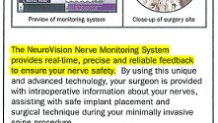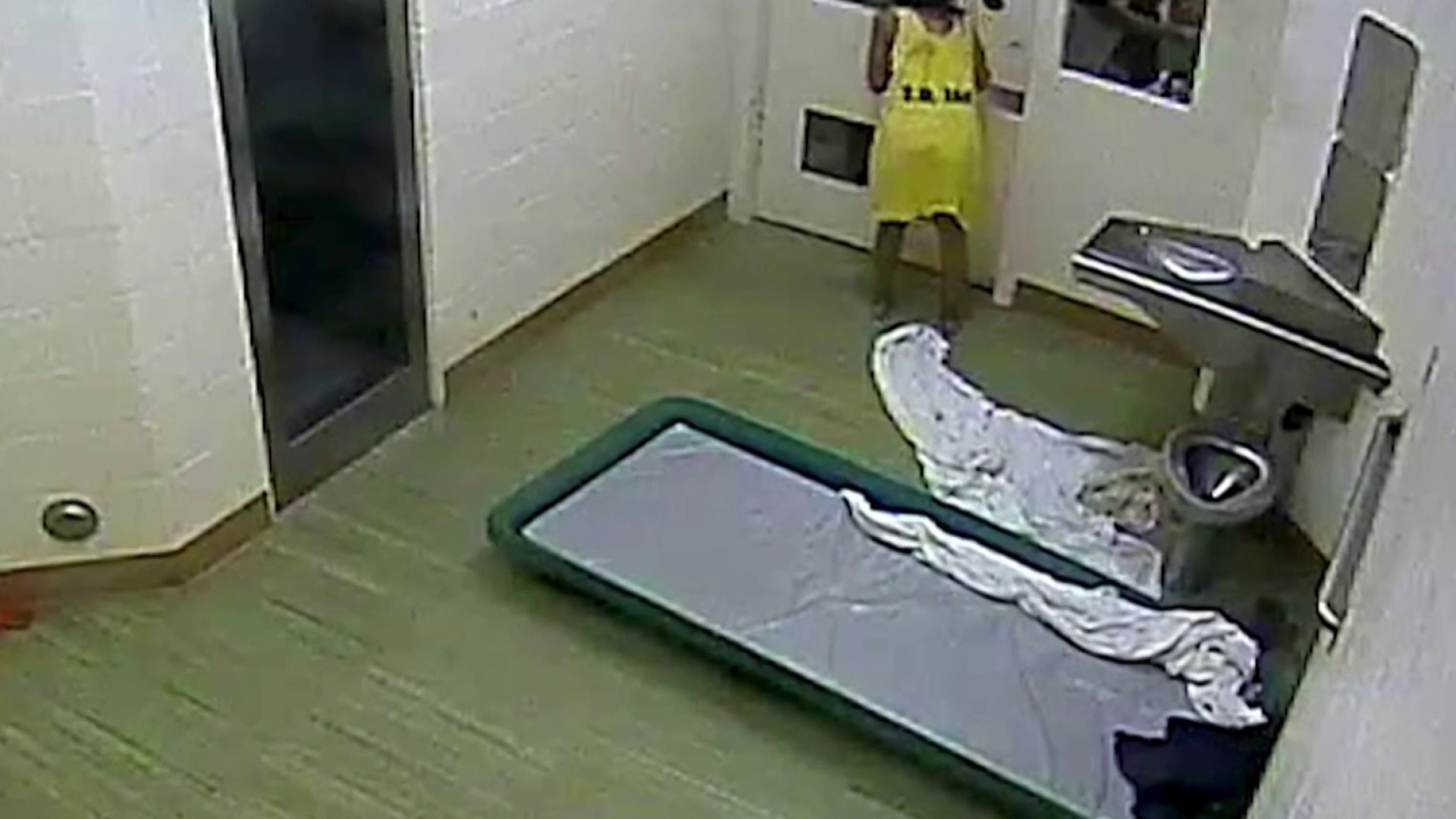An appeals court upheld a multi-million dollar jury verdict last week against NuVasive, Inc., a San Diego-based medical device company that’s a world-leader in surgical devices and procedures for spine surgery.
A San Diego jury found NuVasive conspired with a local surgeon to make false statements to Brenda Kitrosser and thousands of other patients about the safety of its “NeuroVision” device in 2013. An appeals court upheld that verdict May 18.
According to court documents, Kitrosser, of Oceanside, has a history of debilitating back pain.
Her attorney said Kitrosser agreed to let Dr. William Taylor operate on her spine because Taylor told her the NeuroVision surgical device would prevent any damage to her nerves.

Taylor, a clinical professor of neurosurgery and vice-chairman of the neurosurgery department at UCSD, also sent Kitrosser pamphlets produced by NuVasive that boasted how the NeuroVision device could “ensure… nerve safety,” according to the lawsuit.
But things did not go as planned with Kitrosser’s surgery. According to evidence presented at the trial, Kitrosser’s back pain worsened after the procedure. She had more trouble walking and doing daily activities than before the surgery.
Local
“She has chronic, unrelenting pain,” Kitrosser’s attorney, Bob Vaage, told NBC 7 Investigates. “She’s on constant pain medication, and for all intents and purposes, she’s become housebound” as a result of the problem surgery.
Kitrosser’s lawsuit against NuVasive and Dr. Taylor accused the defendants of negligence, intentional misrepresentation and other wrongdoings. The lawsuit claimed – and the jury agreed – NuVasive and Dr. Taylor misrepresented the ability of the NeuroVision device to “ensure” the safety of her nerves during the surgery.
According to the appeals court ruling, “NuVasive knew the NeuroVision device could not guarantee nerve safety” and was aware of dozens of reports that the device had failed to raise an alarm of potential nerve damage when it should have.
During the 2013 trial, jurors also learned details about Dr. Taylor’s business and financial relationship with NuVasive.
According to the appeals court decision, Taylor helped NuVasive develop and test new devices, taught other surgeons how to use those devices, spoke to the media and investors and “advised NuVasive’s sales and marketing staff.”
Evidence presented at the trial showed that in return for his work, which started in 2003, Taylor received stock and stock options in NuVasive valued at more than $400,000 in 2008. By the end of that same year, Taylor was also receiving more than $220,000 annually in payments from NuVasive.
Attorney Vaage said Taylor never told Kitrosser about his financial relationship with NuVasive. “The evidence in the case was that both Dr. Taylor and NuVasive did what they could to keep that relationship secret from the patient," the attorney said.
Dr. Taylor and his employer, the Regents of the University of California -- a state agency -- made a $1.75 million settlement with Kitrosser before the case went to trial.
A spokesperson for the Regents had no comment on that settlement or the allegations against Taylor and the Regents, but told NBC 7 Investigates $1.5 million of the settlement was paid by an insurance policy owned by the Regents and the remaining $250,000 was paid from an insurance policy owned by NuVasive.
A spokesperson for Dr. Taylor declined to comment on the allegations made against him in the lawsuit, the jury verdict, or the appeals court’s decision.
Despite the evidence presented at trial, the jury’s verdict and the appellate court decision, in a statement released to NBC 7 Investigates, a spokesperson for NuVasive said, “there were no legal claims at trial that NuVasive’s products or equipment failed to operate as planned.” The statement also indicated the company might pursue another appeal, perhaps to the state Supreme Court. Read the full statement from NuVasive below.
During the trial NuVasive challenged all of Kitrosser’s allegations, but according to the appeals court, after hearing the evidence the jury found, “… Taylor’s statements (about the NeuroVision device) were a substantial factor in causing Kitrosser’s harm, and NuVasive agreed and intended that Taylor made such statements.”
After three weeks of deliberations in the 2013 trial, jurors ordered NuVasive to pay Kitrosser $3.1 million. The trial judge reduced that award to $2.8 million and NuVasive asked a state appeals court to reverse the verdict.
But, in a unanimous, 46-page ruling issued May 18; the San Diego-based appeals court upheld the entire verdict.
Click here to read the appeal court ruling.
“We are satisfied that the record contains substantial evidence to support the jury’s verdict on conspiracy,” Justice Joan Irion wrote in the court’s opinion. ”Both Taylor and NuVasive knew that their representations about the NeuroVision device were untrue… In sum, we have little difficulty concluding that inferences from the direct evidence support the finding that NuVasive and Taylor conspired to misrepresent the ability of NuVasive’ s NeuroVision device to ensure Kitrosser’s nerve safety…”
A spokesperson for Dr. Taylor declined to comment on the allegations made against him in the lawsuit, the jury verdict, or the appeals court’s decision.
In a statement released to NBC 7 Investigates, NuVasive indicated it might pursue another appeal, perhaps to the state Supreme Court.
The full statement from the company is below:
"The legal process continues with respect to this case. The case grew out of malpractice claims by the patient against her surgeon and we maintain that we did not conspire to misrepresent the efficacy of our products. There were no legal claims at trial that NuVasive’s products or equipment failed to operate as planned. NuVasive is dedicated to providing products and procedures that enable superior patient outcomes from spine surgery, and patient safety is our paramount concern. We are disappointed in the outcome of this case, and we respect the unique relationship between a patient and her physician.”
NBC 7 Investigates is working for you. If you have more information about this or other story tips, contact us: (619) 578-0393, NBC7Investigates@nbcuni.com. To receive the latest NBC 7 Investigates stories subscribe to our newsletter.



